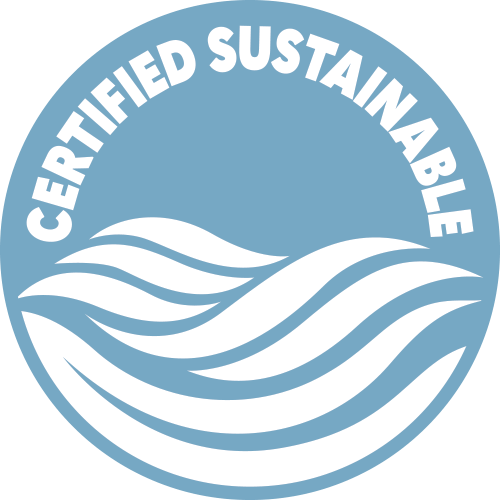SUSTAINABILITY - PACIFIC SEAFOOD

We believe it is our responsibility to serve our oceans through a continuous commitment to sustainable fishing practices that protect our fisheries. Pacific Seafood works collaboratively with the NOAA Fisheries Science Centers, the Regional Fishery Councils, Department of Ecology, Departments of Fish and Wildlife in each state where we operate, state governments, and the NOAA Fisheries Policy Division to ensure our fisheries are robust and our stocks are sustainable long into the future. We also have a sustainable aquaculture program, which helps to meet the global demand for seafood while keeping wild fisheries healthy. When managed carefully, both wild and farmed stocks will thrive for generations. In addition, all vessels that harvest for Pacific Seafood using trawl methods are required to have turtle excluder devices. These devices allow turtles to escape if they get caught in the nets.
We also work with the Dungeness Crab Fishing Working Group in California which provides guidance and recommendations to the California Dungeness Crab fishing industry about how to avoid/minimize whale entanglements and identify measures to be implemented or experiments to be developed that would address the entanglement issue. We ensure that this information is shared with and executed by our fleets. New regulations regarding surface gear were also implemented as part of this legislation, reducing the risk of marine life entanglements.
Our dedication to sustainable efforts goes beyond our commitment to oceans and fisheries. We recognize taking care of our earth is critical for the health of our oceans, as well as the communities where we reside. We are dedicated to reducing, reusing, and recycling in every area we can to conserve our precious resources.
Learn more about our sustainability efforts in our Corporate Social Responsibility Report.
Understanding our Certifications
MSC
The MSC runs an exciting and ambitious program, working with stakeholder partners to transform the world’s seafood markets and promote sustainable fishing practices. The MSC vision is for the world’s oceans to be teeming with life, and seafood supplies safeguarded for this and future generations. Their credible standards for sustainable fishing and seafood traceability seek to increase the availability of certified sustainable seafood.
BAP
The Best Aquaculture Practices (BAP) standards address environmental and social responsibility, animal welfare, food safety, and traceability in a voluntary certification program for aquaculture facilities. BAP certification defines the most important elements of responsible aquaculture and provides quantitative guidelines by which to evaluate adherence to those practices. The BAP program outlines standards for each type of facility, from hatchery and feed mill to farm and processing plant.
Certified Sustainable Species:
- Albacore Tuna—Marine Stewardship Council
- Coldwater Shrimp—Marine Stewardship Council
- Columbia River Steelhead—4 Star Best Aquaculture Practices
- Dover Sole—Marine Stewardship Council
- Keta Salmon—Marine Stewardship Council
- Kumamoto Oysters—Marine Stewardship Council
- Pacific Oysters—Marine Stewardship Council
- Petrale Sole—Marine Stewardship Council
- Rockfish—Marine Stewardship Council
- Sablefish—Marine Stewardship Council
- Sockeye Salmon—Marine Stewardship Council
